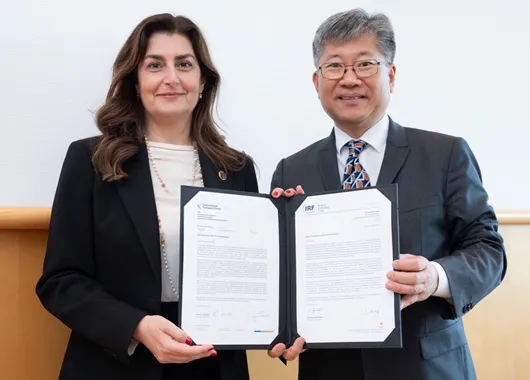The International Transport Federation (ITF) and Fédération Internationale de l’Automobile (FIA) are to launch Safer City Streets, the new global traffic safety network for liveable cities on 18 October during the UN Habitat III conference in Quito, Ecuador.
Road safety is a growing issue for mayors and city managers. Cities address many challenges by working together and learning from each other – but so far not in the field of road safety data. Safer City Streets now fills this gap by linking cities t
October 18, 2016
Read time: 2 mins
The International Transport Federation (ITF) and 7113 Fédération Internationale de l’Automobile (FIA) are to launch Safer City Streets, the new global traffic safety network for liveable cities on 18 October during the UN Habitat III conference in Quito, Ecuador.
Road safety is a growing issue for mayors and city managers. Cities address many challenges by working together and learning from each other – but so far not in the field of road safety data. Safer City Streets now fills this gap by linking cities that are working on making their citizens safer in traffic by improving the empirical evidence for policy decisions.
Cities provide data to the Safer City Streets database via a questionnaire and in return have free access to data from peer cities, thus allowing comparisons. The ITF manages the data collection and validation, analyses the data and administrates the network. Safer City Streets will go beyond the database by establishing a network of experts, whose goal is to exchange knowledge and learn from each other and their respective cities.
Safer City Streets builds on a 2013 pilot project with nine cities from Europe and North America that shared data on crashes, population, mobility and traffic. The success of the pilot gave birth to the idea of linking up cities worldwide for better road safety. Safer City Streets is modelled on ITF’s global road safety network of countries (known as the IRTAD Group), that has thrived for more than 25 years and which conducted the pilot.
Road safety is a growing issue for mayors and city managers. Cities address many challenges by working together and learning from each other – but so far not in the field of road safety data. Safer City Streets now fills this gap by linking cities that are working on making their citizens safer in traffic by improving the empirical evidence for policy decisions.
Cities provide data to the Safer City Streets database via a questionnaire and in return have free access to data from peer cities, thus allowing comparisons. The ITF manages the data collection and validation, analyses the data and administrates the network. Safer City Streets will go beyond the database by establishing a network of experts, whose goal is to exchange knowledge and learn from each other and their respective cities.
Safer City Streets builds on a 2013 pilot project with nine cities from Europe and North America that shared data on crashes, population, mobility and traffic. The success of the pilot gave birth to the idea of linking up cities worldwide for better road safety. Safer City Streets is modelled on ITF’s global road safety network of countries (known as the IRTAD Group), that has thrived for more than 25 years and which conducted the pilot.










